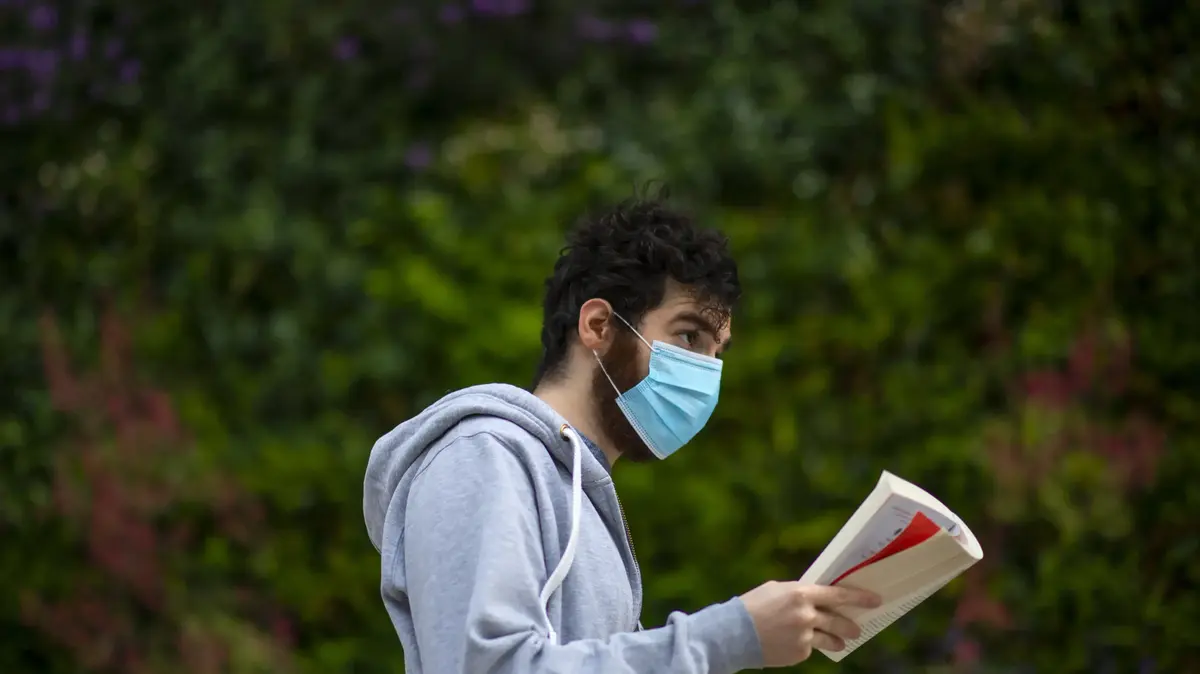health
psychology
How many people committed suicide in Israel during the Corona period and what does this say about the future?
Suicide Awareness Week falls this week and if you thought the corona plague, which brought with it loneliness and closure, would actually increase the suicide rate you are wrong.
So why are researchers actually worried about the phenomenon?
Tags
Corona
Suicides
psychology
Mental Health
Walla!
health
Sunday, 14 November 2021, 08:18 Updated: 09:50
Share on Facebook
Share on WhatsApp
Share on general
Share on general
Share on Twitter
Share on Email
0 comments
Despite the loneliness and social closure we have all experienced in the last two years, in the period when the corona plague broke out in Israel, in early March 2020, until the period when the third wave of the plague ended in February 2021, there was a decrease in monthly suicide attempts. 17 suicide attempts per month, according to a new study conducted at the University of Haifa.
You would think that these are excellent data, but it turns out that they can also be very worrying: "The results of the study predict that the suicide rate in Israel will rise again after the Corona restrictions are lifted," explain research editors Prof. Stephen Levin of Haifa University and Yael Travis-Lom from the Technion.
More on Walla!
Is it possible to help someone who has decided to commit suicide?
To the full article
About 800,000 people die each year from suicides around the world.
Suicide attempts are related to family, economic and social problems.
According to the researchers, the corona epidemic is a complex event with bio-psychological characteristics that can cause widespread social trauma and therefore could have been expected to affect suicide attempts.
A boy with a mask reads a book.
The photographer has nothing to do with the article (Photo: GettyImages, Justin Setterfield)
In a study published in the prestigious journal Psychological Medicine, the researchers, Prof. Levin from the Department of Community Mental Health at the University of Haifa, Prof. Arad Kodesh from the United Health Insurance Fund and the Department of Community Mental Health at the University of Haifa, Prof. Yair Goldberg and research student Yael Travis-Lom from the Faculty of Industry and Management Sofia Frango from Mount Sinai Hospital, to characterize the connection between the corona plague and the rate of suicide attempts that cause hospitalization in Israel.
The researchers stressed that these were suicide attempts that led to the need for hospitalization and receiving medical treatment.
The study collected data from 852,223 members of the United Health Insurance Fund aged 15 and over, between January 2013 and February 2021. "When a patient arrives at the emergency room, and it is verified that there was indeed a suicide attempt, the information passes to the HMO," the researchers explained.
More on Walla!
In this country more people have died from suicide than from Corona in the last year
This is what two weeks at home do to the body
How to prevent?
Research has identified patterns of behavior that preceded suicide attempt
New Israeli development prevents platform pain.
Do not believe?
There is a free demo
The results of the study show that during the three closures of the corona, there was a reversal in the trend of suicide attempts in Israel.
After many years of an increase in the rate of suicide attempts in Israel, during the corona period, between March 2020 and February 2021, there was a decrease in the rate of suicide attempts compared to the period before the outbreak of the plague.
According to the findings, the number of monthly suicide attempts in Israel increased linearly between 2013-2020, when in the months before the corona the attempts reached a peak of about 21 suicide attempts per month.
According to the expectation of the continuation of this trend, the maximum predicted suicide attempt during the corona period was supposed to increase to about 24 attempts per month, but in practice a maximum number of about 17 suicide attempts was observed only.
Overall, during the entire corona period, an average decrease of about 37 percent was observed in the number of suicide attempts.
"Disaster model." Ambulance at the entrance to the emergency room (Photo: Flash 90, David Cohen)
"The expectation was that the upward trend in the suicide rate would continue during the corona period but this did not materialize. It is possible that traffic restrictions were the ones that reduced the chances of suicide attempts, for a variety of reasons such as depression or loneliness," the researchers said. Another possibility for a decrease in the suicide rate according to the researchers is that we respond to the epidemic according to a psychological model called the "disaster model".
According to this model people show a positive attitude in the initial stage of disaster, concentrating less on themselves and more in response to disaster. So that a state of social unity is created and the suicide rate decreases accordingly. "However, the results of our study predict that the number of suicide attempts will rise again after the Corona restrictions are lifted. "There is a good chance that this number will increase in the near future."The researchers concluded.
Share on Facebook
Share on WhatsApp
Share on general
Share on general
Share on Twitter
Share on Email
0 comments

